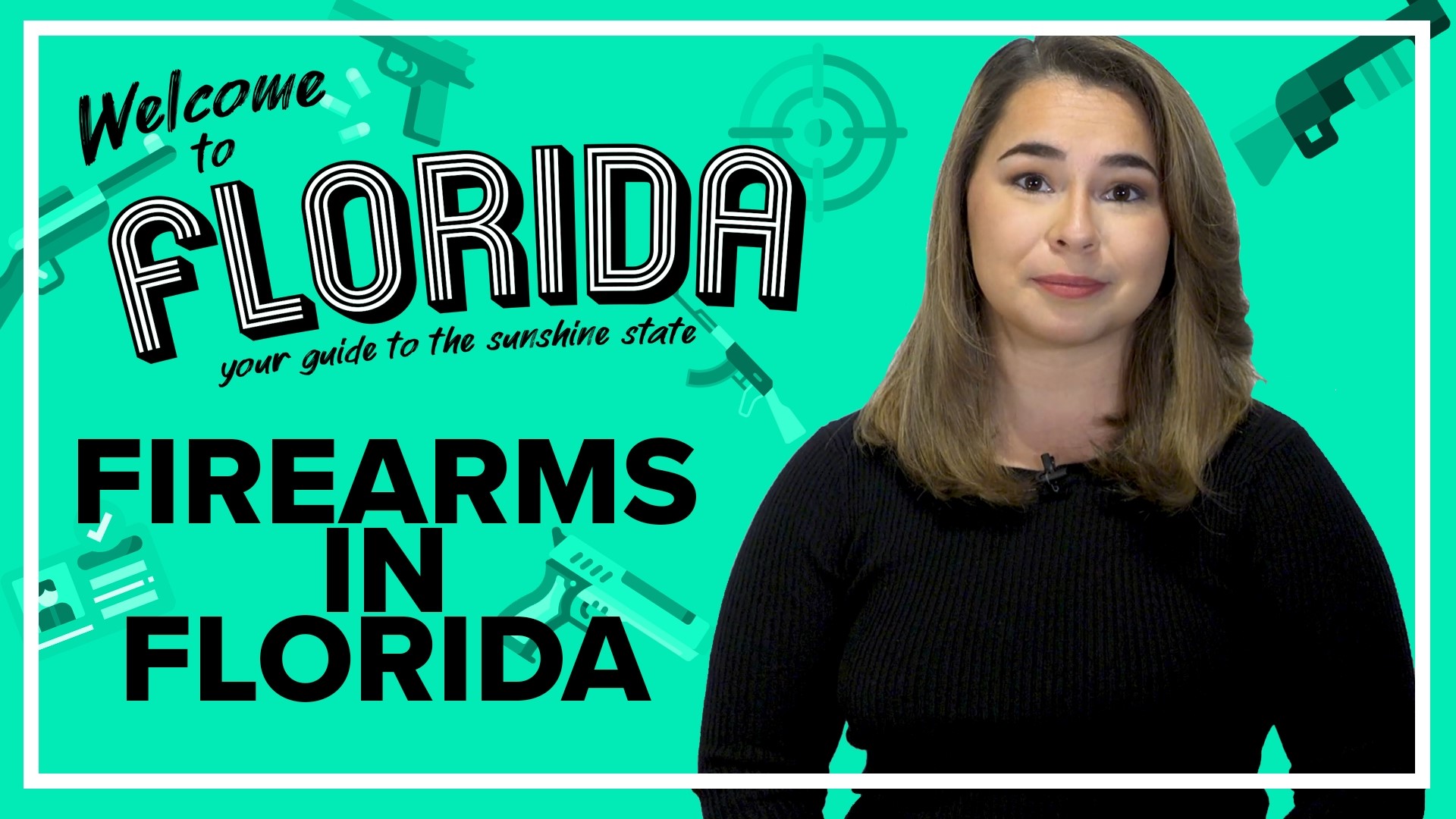TAMPA, Fla. — If you own firearms, moving to a new state can sometimes be complicated.
Every state has its own set of laws on what types of firearms you can have, where you can have them, and permits you may need.
If you’re moving to Florida, there may be less to do than somewhere else you have lived.
However, there are some restrictions on the types of firearms you can have.
Florida doesn’t allow short-barreled rifles, short-barreled shotguns, or machine guns in operable conditions. This doesn’t mean they’re banned completely, though. Since these weapons fall under the National Firearms Act, if you have a Florida gun trust, you can possess and use these guns. However, the process can take more than 10 months, so you could be waiting a while.
Other than that, generally speaking, you should be good to go.
If you plan to drive your firearms to Florida, you’ll need to keep them unloaded and stored securely in your trunk.
You also may be coming from a state that requires you to register your firearms. Well, that’s not the case in Florida.
You won’t have to register any firearms you currently have; and any new guns you purchase also don’t need to be registered.
However, some things can get a little more complicated, especially when it comes to concealed-carrying a handgun.
Florida will require you to get a Concealed Carry Weapon license. If you already had a CCW license in the state you previously lived in, there are 36 states with which Florida has reciprocity.
But, there’s a catch. Your permit will only be valid for 90 days after establishing residence. You can’t transfer your permit over, so you’ll have to file for a new one from Florida. That will cost you $97, and it’s valid for seven years. It can also take up to three months to process, so you will want to get that done sooner rather than later if you want to conceal carry.
To get a CCW, you will need to be at least 21 years old, have completed an approved firearms training class, be a U.S. citizen, and reside in the U.S. You also cannot have two or more DUI convictions or any convictions for a violent crime in the last three years.
There are some perks to having a CCW. For starters, if you don’t have a CCW and you purchase a handgun, there’s a three-day waiting period before you can actually take the weapon home.
With the CCW, you can buy and leave with your new handgun on the same day.
Additionally, having a CCW changes how you can carry your handgun in your car. Without a permit, you have to keep it securely encased and not readily accessible for immediate use. This means it needs to be in a case, glove compartment, or any type of container that requires a lid or cover to be opened for access.
With the permit, none of that really applies. You just have to keep the firearm concealed.
Regardless of the permit, there are a few places you cannot have firearms, such as a police station, courthouse, schools, and airports to name a few.
They are allowed in state parks, national forests, roadside rest areas, your car, and pretty much anywhere else that isn’t deemed off-limits.
But, what if you want to open-carry your firearms?
Well, for the most part, you won’t be able to do that in Florida. The only times you can open-carry are when you’re fishing, camping, or hunting.
Lastly, if you need to use your firearm, when can you actually use it?
Florida does have a “stand your ground” law and it has been in place since 2005. It allows gun owners to use their weapons for “home protection, against deadly force, or when there is a presumption of fear or death or great bodily harm.”
There are nearly two million active concealed carry licenses in Florida, far surpassing any other state, including Texas. So, you could say Florida is a very second-amendment friendly state.

